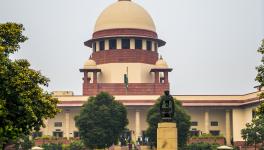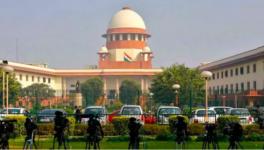The recent protests by major websites and online organisations on the threat to Internet from certain proposals of US lawmakers has drawn worldwide attention. Though the US lawmakers talked about of copyright violations, the real thrust was against user generated content. What has not drawn similar attention is the recent IT Rules released by the Government and proceedings in Indian courts against major social networking sites. Here again, the thrust is against user generated content and the liability of companies defined as “intermediaries” that allow such user generated content to be put up on their sites. If the US lawmakers and the Indian government have their way, make no mistake -- the Internet as we know it will cease to exist.
The power of the Internet comes from user generated content – everybody with access to a computer can now publish a “newspaper” or have a “TV station” in her home. Newspapers and news channels no longer have monopoly over news. This has enormous potential for democratisation of media. But it also brings in new problems -- how do we prevent illegal material from reaching the people? This illegal material can be copyrighted material or material that is termed as "hate" or “seditious” or "obscene" in different countries. This also brings up how to handle material that is legal in one country but not in another. Something that is legal in the US such as white supremacist literature is illegal in most countries. Similarly, material that is copyrighted in the US may not be copyright protected in India. So how do we operate various country laws in cyberspace? In other words, whose laws should operate on the net?
The courts in India have taken the position that if material is being viewed in India, Indian laws will prevail. There can be little quarrel with this, irrespective of the problems of enforcing such a view. The question is how is this to be enforced? If we accept what, for example, Markandey Katju, the Chairperson of Press Council is saying, it means that all material that is put up on the net should be screened and pre-censored. To give an example, if I put up a video on YouTube, YouTube is liable for what I have put up and therefore needs to screen it before it goes up on YouTube. With 72 hours of user generated videos posted on YouTube every minute, possibly in more than 300 languages, this would mean the end of YouTube. For Facebook, with 40 million users in India alone, and Google, it may mean withdrawing from India if this interpretation is what finally the courts decide.
The workable alternative is that governments and people can ask user generated content to be taken down if it violates law. As long as “intermediaries” – sites that host such material takes it down after being notified, they enjoy “safe harbour” or are protected against liabilities for such user generated content. This was the intent of the IT Act. This is the only sensible way to reconcile the two conflicting needs -- the reality of the way Internet functions and the need for material on the net to be lawful.
The IT Act as amended in 2008 defines “safe harbour” for intermediaries against criminal or civil liabilities. Unfortunately, the IT Rules as has been notified recently, negates this safe harbour by enlarging the scope of offensive material far beyond what is legally permissible in India. Nor does it contain a put-back provision for parties whose material is taken down for what may be a frivolous complaint.
Two sets of threats are now emerging. One is from treating companies that allow social networking and posting of user generated content on their sites as publishers and not as intermediaries. This is the essence of the private complaints filed in Delhi courts against companies such as Google and Facebook by Vinay Rai, a journalist and Aijaz Ashraf Qasmi, the founder of
fatwaonline.org. These two complaints claimed that web content that can discovered in search engines and user generated content posted on various websites violates Indian laws. The civil court has passed a restraining order against “content of this type” from being made available on the Internet in the future. The criminal court has held that a prima facie case exists that Internet platforms are engaged in “criminal conspiracy” and therefore instituted criminal proceedings against the senior management of these companies. In these cases, the
Government agencies are presenting arguments that effectively complement the private complaints.
These complaints in essence and the courts actions take the law back to a stage where the
safe harbour provisions did not exist. The simple issue which the courts seem to be losing sight of is that the liability for old fashioned print and TV was for the author and the publisher. In case of YouTube/Facebook, who is the publisher -- the user who generates the content or YouTube/Facebook? If Google's search throws up a set of web pages, is it creating content? In my mind there is little doubt that it is the user who is the author and the publisher, unless editing functions are being performed by the site where such material is being uploaded. Google and its search engine, YouTube and Facebook do not perform any editorial function, hence they are intermediaries as defined in the IT Act. And they therefore have quite different liabilities from that of the publishers. If they have failed to take down illegal material after being given notice, only then they can be considered to have liabilities.
The second issue is with respect to Government censorship. Under the IT Act, the power for the Government to block material are given under Section 69A. They have provisions that are quite similar to what conventional media also has, so Internet media would appear to have protection similar to other media. The catch is that the Government is now claiming that under Section 79 too the Government can ask material to be taken down, and this without the protection granted under Section 69A. Strange as it may seem, instead of safe harbour meant to be provided under Section 79, the Government is now claiming additional censorship powers. In other words, they have two ways of censorship – one way is under Section 69A that has various protection against misuse and another under section 79, that only requires a phone call; or being called into Sibal's chamber and being asked to take down material.
It is widely recognised that without a safe harbour provision for intermediaries, user generated content is largely dead – most bloggers and those uploading videos depend on intermediaries. Without them, we are back to only those with money being able to survive, who can perhaps try and pre-screen content. The democratisation of media that the Internet currently provides would disappear. Is that we want in India – go back to a pre-Internet era?
What the Government does not seem to understand is that if we impose such conditions on the Internet companies, they have little option but to quit India. Screening of user generated content is not technologically a viable option -- some censorship is possible but at a very high cost. As China is discovering and others will as well, all that it creates is a huge bureaucracy that tries in vain to stop the flow of information.
When Kapil Sibal called the social networking sites to his chamber, his intention seems to have been to assert back door control over social media. Fall in line and take down what we tell you, then we will give you protection under intermediary safe harbour provisions. Else, you will face criminal prosecution for permitting illegal material on your sites. Having failed, partly because it became public and the sharp reaction public reaction, we now have prosecution in the courts on dubious private complaints. Is this a mere coincidence or does it indicate a deeper complicity?
What the Parliament has given as safe harbour for intermediaries under the IT Act is now sought to be taken back under Section 79; safe harbour would be available only if the the Internet companies implement private censorship of material that Government does not want. Therefore the urgent need to define in the Rules clearly that Section 79 cannot be used for Government censorship. And that the IT Rules cannot go beyond what is under Indian constitution reasonable restriction on the media. Take down any material that violate law, but nothing else.
The battle over Intermediary Rules is therefore not some esoteric battle being fought over some baffling provisions of law. It is simply about what you and I can put up on our blogs that may hurt the rich and the powerful. It is about our basic democratic right as citizens of free speech.
The IT Act passed by the Parliament may not be the best but at least is a workable regime for the Internet. What the Government has notified as the Rules under the Act is completely retrogressive and against the legislative intent of the Act. The Parliament must therefore assert its authority and annul these rules. The window for such a motion in Parliament is only the current Budget session. We hope some parliamentarians will take the initiative to move such a motion. And the courts should throw out complaints that challenge not Google and Facebook as is being made out to be but essentially user generated content itself.
(updated on 28 March, 2012)
























